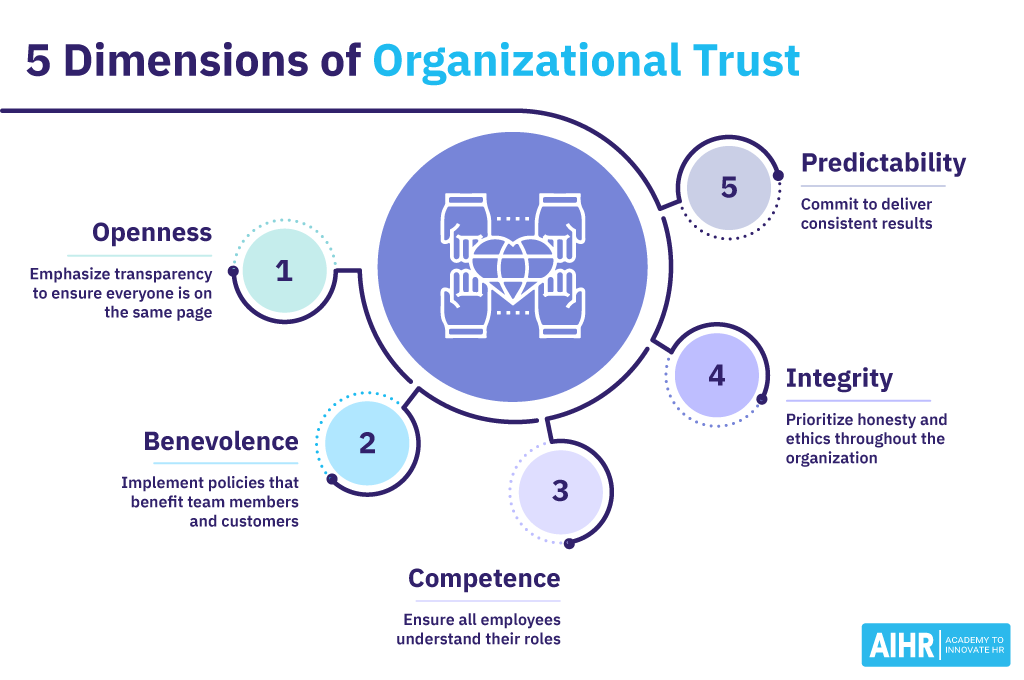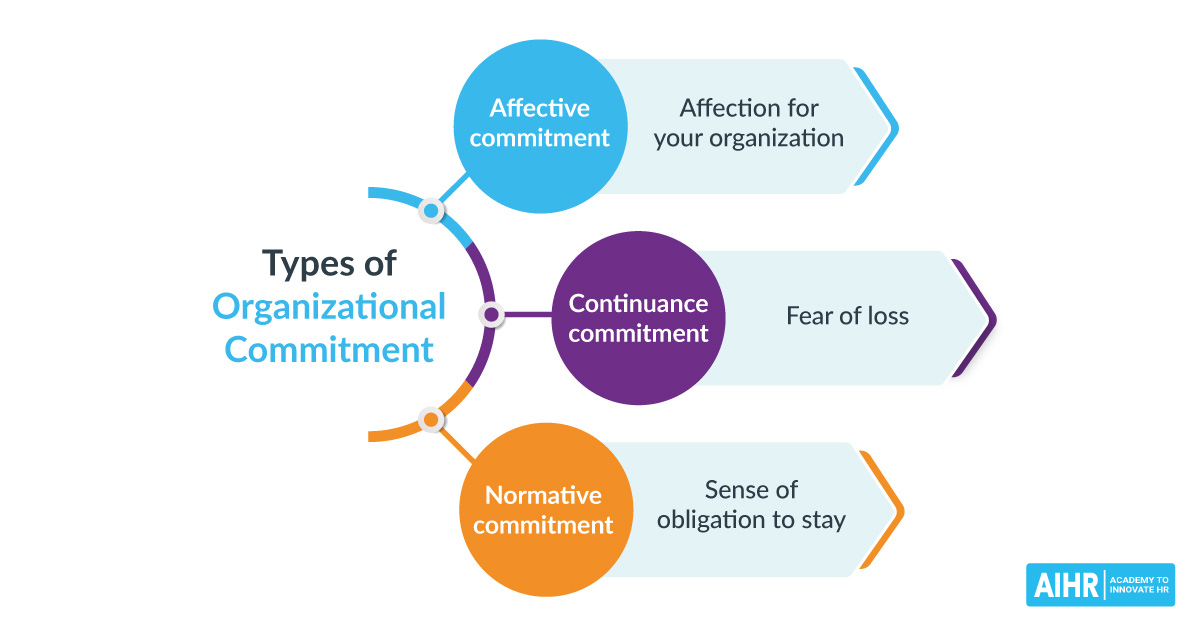Organizational Trust
What is organizational trust?
Organizational trust describes the amount of confidence that your team members and customers have in how your leaders run your organization.
Team members who trust the people they work with are more likely to feel comfortable and secure at work, which can increase their overall satisfaction and willingness to put a high level of effort into supporting the company.
Why is organizational trust important?
Taking steps to improve organizational trust among your team members at every level can go a long way toward boosting their overall experience working for your company.
Organizational trust:
- Enhances employee engagement. People at high-trust companies are 76% more engaged.
- Boosts productivity and innovation by creating an environment in which your team members feel comfortable taking risks and pushing the boundaries of how things have always been done.
- Reduces employee turnover by improving your team members’ overall experience as members of your company and reducing any reasons they may have for considering a different career. Thanks to its focus on building organizational trust, employee turnover at the Ritz-Carlton hotel chain is 58.8 percentage points lower than the industry average.
- Elevates the organization’s reputation among customers, other professionals in your industry, and job candidates by helping you deliver consistent, high-level results. 74% of employees would prefer to work for a company that is viewed as trustworthy.
- Increases employee satisfaction by helping everyone on your team feel like valued members of your organization.
Patagonia is an outdoor clothing and gear company that has built organizational trust among employees and customers alike through its commitment to sustainability, social responsibility, and work-life balance.
Its “Let My People Go Surfing” program promotes employee engagement and retention, while its use of organic cotton and “Worn Wear” programs have earned it a reputation for being a socially responsible company that cares about the environment. Such initiatives have helped Patagonia achieve long-term success.
What are the five dimensions of organizational trust?
Strong organizational trust is built on several elements that form the foundation for improved loyalty, morale, and collaboration. The interplay between these dimensions impacts your organization’s reputation among your employees and customers.
Here are five dimensions that comprise organizational trust:
- Openness: Emphasizing transparency to ensure that everyone is on the same page, with the exception of protecting confidential business secrets.
- Benevolence: Creating policies and completing tasks that support a genuine desire to benefit your team members and your organization’s customers.
- Competence: Ensuring that every member of the team understands their responsibilities and is capable of handling their tasks effectively to advance the success of your organization instead of hindering it.
- Integrity: Prioritizing honesty and ethics in every aspect of the structure and functions of your organization.
- Predictability: Being capable of delivering consistent results.

How to measure trust in your organization
Understanding the level of trust your team members have in your organization’s leaders and your business as a whole requires a multifaceted approach. You also need to consider the role organizational trust plays in the overall success of the business.
Some of the most important steps to take when measuring and analyzing trust in your organization include:
- Define trust dimensions. Before you can measure trust, you need to define what trust means within the context of your organization. By defining these dimensions, you can set clear parameters on what aspects of trust you’re aiming to assess.
- Formulate questions pertaining to the trust dimensions to ask your team members. Also, aim to gather information about how your team members feel about your organization’s leadership and those who are making business decisions.
- Use surveys, questionnaires, and other methods to collect data from employees and other stakeholders. They should feel that they can provide honest feedback and voice their concerns without fear of retribution.
- Analyze the data and interpret your findings to gain insights into the current state of trust at your business, as well as the opportunities for your organization to build trust.
- Communicate the results to your employees. It will show your commitment to transparency and help them understand how you may use the insights to improve your organization in the future.
- Act on the feedback, especially in the areas where trust is lacking. This could involve changes in communication strategies or re-evaluating leadership approaches.
Building organizational trust: What HR can do
Increasing organizational trust is an ongoing process that requires a significant amount of hard work to produce results. This is especially true if your business is working on recovering from previous trust issues that have negatively impacted your organization.
Here is how you can start improving trust within your organization:
- Emphasize transparent communication. Building a workplace culture where employees believe that the information being shared is complete and accurate is key to boosting organizational trust.
- Promote fair and unbiased HR practices to treat team members as equitably as possible.
- Include accountability, transparency, and consistency in your standard procedures to reduce trust-related issues. For example, implement a standardized process for HR investigations with pre-defined steps and thorough documentation.
- Resolve conflicts as quickly and efficiently as possible to solve minor problems before they become larger issues.
- Recognize that trust needs to be earned with consistent hard work over time and may take a significant amount of time to improve. While you won’t see the results you want overnight, sticking with your goals can help you achieve the level of trust you’re aiming for.
HR tip
Organizations can’t build trust without trustworthy leaders. Encourage leaders to lead by example, demonstrating honesty and transparency in their actions.
When leaders model trustworthy behavior, act with integrity, and are accountable for their actions, it will set a standard for the entire organization and help foster a safe, supportive working environment.







